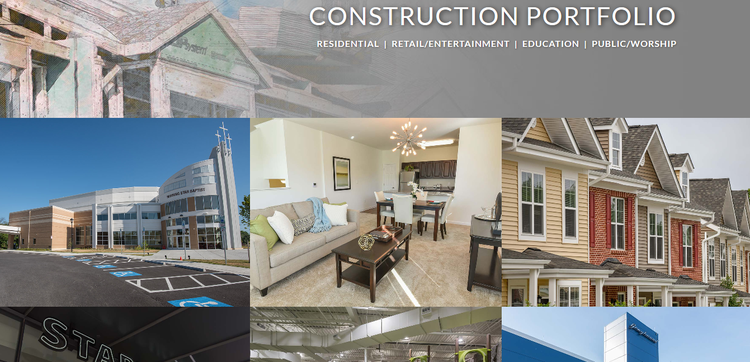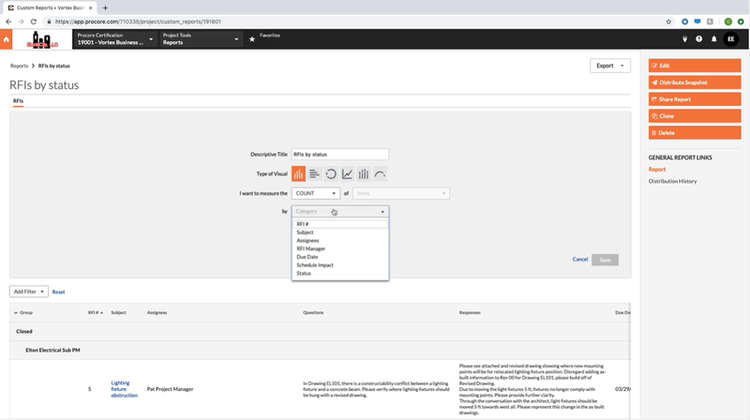Construction management -- it sounds complicated, but is it? And is it a career you should be considering?
The median construction manager salary is $95,250, according to the U.S. Bureau of Labor Statistics, so it's easy to understand why some people may want to get into this business. And it's not all about the money -- construction management may appeal to those who don't want to be stuck at a desk all day.
Whatever reason you have for looking to learn about construction management, this guide will break down what this career involves and help you decide if it's something you want to pursue.
Overview: What is construction management?
Construction management is the oversight and execution involved in building a structure.
While it's often used interchangeably with project management, construction management is more comprehensive, involving the design of the building, bidding for new projects, managing equipment, monitoring construction sites, construction administration, and other aspects unique to construction.
A construction manager typically answers to the owner and oversees the entire project from start to finish. They are responsible to meet the project schedule and stay on budget.
The four types of construction management
Construction jobs can vary widely. Construction management differs depending on what you’re building. Here are four main categories into which construction managers tend to fall:
- Commercial construction: Commercial construction companies build stores, office buildings, and other facilities. Commercial buildings are larger, require more well-financed companies, and require larger equipment and more workers. They also require different materials, such as steel instead of timber.
- Residential construction/home building: Building homes can be done by much smaller outfits, and the materials and permits required will look different than commercial construction. However, residential construction can involve large apartment complexes, which may more closely remember a commercial construction project.
- Remodeling: Remodelers are smaller still, sometimes consisting of just one or two people who often hire a bunch of subcontractors to help them fix up a house in order to "flip" it, or perhaps just at the request of homeowners who want to improve their home or increase its value.
- Subcontracting: Subcontractors are the smallest firms, sometimes consisting of just one person who specializes in one area of construction, such as an electrician or a plumber.

An example of Commercial Group’s construction portfolio, which includes a mix of residential and commercial. Image source: Author
What the construction management process looks like
Construction project management processes vary depending on the construction project type, or the style of the construction manager or owner. However, they all share five main phases.
Phase 1: Bidding
Until you have a project, there's no way to conduct the next four steps. Construction managers are often involved in the bidding process, providing realistic estimates to clients.
It's important to get this right -- submitting bids that are too high can cause you to miss out on projects, while submitting bids that are too low will cause you to blow through your budget and leave you with unhappy clients. Spend enough time to get your estimates right, and submit good bids.
Phase 2: Initiation
Once you've landed a project, come up with a concept for how this project will take shape. You’ll need to draw up a project charter, which describes the purpose of the project and sets its scope.
This charter will lay out project specifications, name key stakeholders, and describe client expectations for the project to succeed.
Phase 3: Planning
This is where you describe exactly how you'll meet the expectations set out in the project charter. You'll work up a realistic budget that takes into account materials, labor, and equipment you need to execute the project.
This construction management plan must include a work breakdown schedule, a communication strategy, and identify team members responsible for specific tasks and milestones.
Phase 4: Control and monitoring
When you launch the project, you must monitor its performance constantly. Require regular status reports from your team that describe what was completed and compares it to the schedule you set out for the team.
Monitor all expenditures and adjust for any overages to stay on budget. You should be checking on the quality of the work and any deliverables so you don’t have to go back and fix issues after the fact.
Phase 5: Close
When the project ends, conduct a post-mortem or retrospective analysis of the project. Were you on schedule? Did you meet the budget? If not, why not? How can you improve? Then, meet with your team to go over these issues. Celebrate successes and discuss any setbacks constructively.
Draft a final report that comprehensively describes how the project performed and lists any future changes to your processes and procedures.
Construction management tips and best practices
All of that is easier said than done, and most likely, you’re going to learn through trial and error how to get everything right. And realistically, you’re never going to stop learning. But these best practices will help you avoid some of the early mistakes of this position.
1. Don't neglect planning
As Benjamin Franklin once said, an ounce of prevention is worth a pound of cure. It’s better to spend a few more hours on project planning than a few days dealing with a major setback at the job site because you didn’t do the necessary research to determine how much concrete would be needed by a certain day.
Come up with a thorough plan, and the project will go a lot smoother and reduce incidents that will eat into your bottom line.
2. Ensure the contract is sound
In a similar vein, remember: Good contracts make good business partners. Pore over the contract to ensure that you and the client are on the same page and you both have the same expectations. If you discover later that you didn't review the contract thoroughly, it can come back and bite you by the time the project is over.
3. Prioritize communication
You can't run a construction project without good communication between you, your workers, the client, the owner, and any other stakeholders. At the outset, identify all stakeholders and who is to report to whom for what tasks.
Establish a communication system, such as a mobile phone app that everyone can use, or some construction management software that allows workers to upload progress photos directly to the cloud.
4. Take responsibility
As the construction project manager, the buck stops with you. It's tempting to pass the blame for a schedule delay or budget overrun to a subcontractor or a worker who didn't follow directions.
And that may be true once or twice. But if it's happening repeatedly, you need to take a hard look at your own management style and ask yourself how you can better prevent these incidents.
5. Track data
Thanks to technology, you have more access to data than at any point in human history, and it would be a tremendous waste not to take advantage of this.
Many construction software options can track important construction data such as change orders, material costs, equipment usage, and more. By tracking and then analyzing this data, you'll be able to spot opportunities to improve efficiency and cut costs.

Procore’s custom reporting dashboard allows you to track just about any kind of data within your construction firm. Image source: Author
Start getting an education and experience right away
Convinced this is the right career for you?
Then it’s time to learn how to become a construction manager. Getting a bachelor's degree in construction management certainly will put you on the fast track to this position, but you must gain experience in this field by getting a job in construction and learning the ropes through on-the-job training and apprenticeship.
Armed with a bachelor's degree and real-world experience, you'll be an attractive hire for many construction firms.
Our Small Business Expert
We're firm believers in the Golden Rule, which is why editorial opinions are ours alone and have not been previously reviewed, approved, or endorsed by included advertisers. The Ascent does not cover all offers on the market. Editorial content from The Ascent is separate from The Motley Fool editorial content and is created by a different analyst team.